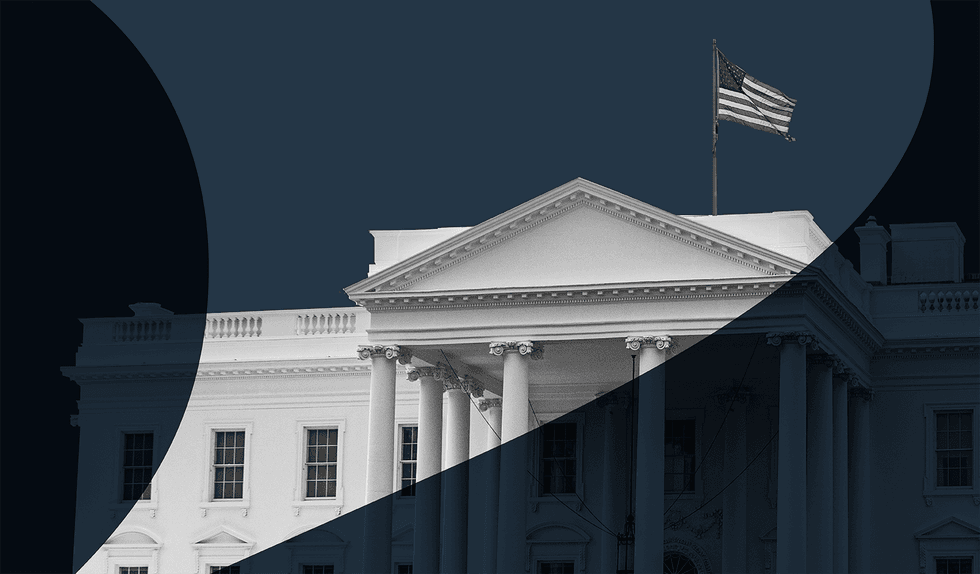New Policy Aims to Strengthen Domestic Investments and Economic Growth

February 27, 2025
The Biden administration has released a comprehensive investment policy memo titled the 'America First Investment Policy', which aims to reshape the economic landscape of the United States. With a strong emphasis on attracting foreign direct investment (FDI) while protecting domestic businesses, this policy is expected to have far-reaching implications across various sectors.
Key Objectives of the PolicyThe memo lays out several strategic goals:
Enhancing Domestic Manufacturing: Encouraging investments in critical industries such as technology, renewable energy, and semiconductor production.
Foreign Investment Incentives: Streamlining regulations for global investors willing to invest in U.S. infrastructure projects.
Job Creation & Economic Growth: Policies aimed at fostering employment opportunities within the country.
Strengthening Trade Relations: A refined approach to balancing global trade partnerships while maintaining U.S. interests.
Financial analysts predict that the policy could lead to significant shifts in investment patterns, particularly in manufacturing and tech-driven sectors. Wall Street has responded positively to the initial announcement, with indices reflecting optimism about the policy’s potential economic impact.
Foreign Direct Investment (FDI) ImplicationsInternational investors are evaluating how the new policy aligns with their long-term investment strategies. Countries with strong trade ties to the U.S. are expected to adjust their financial strategies accordingly.
Sector-Wise Impact Analysis Technology & InnovationWith a focus on boosting domestic semiconductor production and AI development, the tech industry is expected to see a surge in capital flow.
Manufacturing & InfrastructureThe policy promotes large-scale infrastructure projects, likely benefiting companies in the construction and industrial sectors.
Finance & Global TradeNew regulations may pose challenges for global investors but could provide stability to the U.S. economy by reducing dependency on foreign capital.
Challenges and CriticismsWhile the initiative is aimed at fostering growth, critics argue that:
It may create trade tensions with allies and major economic partners.
Small businesses may face difficulties competing with large-scale investments.
The regulatory environment might become complex for foreign investors.
As the 'America First Investment Policy' takes shape, its success will depend on implementation strategies, bipartisan support, and the response from global markets. Analysts will be closely monitoring its impact on economic stability, job creation, and long-term investment flows

Stock Market Gains as Interest Rates Drop
As interest rates fall, investors are finding new stock opportunities. Experts suggest this trend could drive market growth in key sectors

How U.S. Investment Policies Are Evolving in 2024 and Beyond
U.S. investment policies are undergoing major changes, impacting businesses, investors, and financial markets. Learn about key updates shaping the future of investments.

The Influence of U.S. Government Regulations on Investment Strategies
U.S. government regulations significantly shape investment strategies. This article explores how recent changes in policy impact businesses, investors, and financial markets

How U.S. Policy Shifts Influence Investment Approaches
U.S. investment strategies must evolve as government policies shift. This article explores how investors can adapt to changes in regulations and market conditions.

How Regulatory Evasion is Shaping Modern Investment Strategies
As companies and financial markets increasingly challenge regulations, investors must adapt to new risks and opportunities in this evolving economic landscape

How U.S. Tax Laws Influence Investment Strategies
U.S. tax laws play a crucial role in shaping investment decisions. This article explores how changes in tax policies impact investor behavior, asset allocation, and financial outcomes.

How U.S. Investment Regulations Influence Stock Market Movements
U.S. investment regulations play a crucial role in shaping stock market trends. This article explores the impact of regulatory changes on investor behavior, market volatility, and long-term market outlook

Market Strength, Innovation, and Growth Drive U.S. Stocks
U.S. equities continue to outperform, driven by strong earnings, economic resilience, and innovation. Investors remain bullish on long-term market growth

Strategic Equity Insights for Navigating Market Volatility
The stock market remains uncertain amid economic shifts. Systematic equity strategies provide a data-driven approach to managing risk and optimizing returns
The Atlantic Daily
Get our guide to the day’s biggest news and ideas, delivered to your inbox every weekday and Sunday mornings. See more newsletters
.webp)
Ideas That Matter
Subscribe and support more than 160 years of independent journalism.
Subscribe